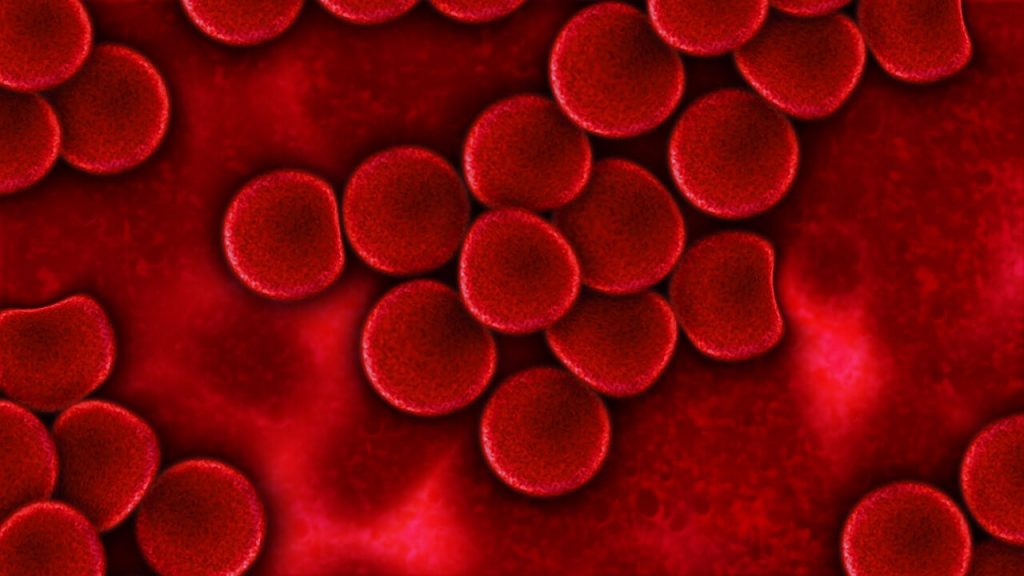Overcoming Fatigue
We’ve all been tired. It’s a part of life, and it’s our body’s way of telling us it needs to recharge. Sometimes, though, the tiredness seems to stick around and no amount of rest can make it go away. This is when words like “fatigue” and “exhaustion” come into play, and a simple, everyday consequence of living becomes a crippling problem. The online Oxford Dictionary defines fatigue as “Extreme tiredness resulting from physical exertion or illness.” So, when does normal tiredness cross the line into fatigue, the kind of exhaustion that possibly needs to be addressed by a physician? If your level of exhaustion interferes with your quality of life and your ability to attend to normal duties associated with your work and home life, a full exam is necessary. However, there really are no uniform guidelines. Tolerance is always subjective, so if you have any doubts or questions about whether or not something is normal it is always best to seek the advice of a medical health professional.
Fatigue can exist in and of itself because of continued overexertion, it can coexist with or be a symptom of underlying issues, or it can be a side effect of medications used to treat any number of disorders. Just as there is no easy explanation of cause, there is no generic solution to be applied across the board.
Physical Causes of Fatigue
Let’s start with the simplest causes. These are the issues that are most controllable and easiest to remedy and would include things like overexertion, poor eating habits, and poor sleep habits. These are mostly things that don’t require investigation to discover…someone generally knows if they are working too hard or no eating properly. Knowing what the issue is and taking steps to remedy said issue are two entirely different things, however.
Activity Level
We generally think of fatigue as a natural result of a high level of physical activity. It is the expected result of exertion, either in bursts, such as a professional athlete in a performance, emergency services personnel in a crisis, or even mowing a lawn with a push mower. Some types of employment are by nature more physically demanding than others. Normally this type of exhaustion is remedied with rest; a day off or a few days’ vacation and the body resets itself.
It is important to note that lack of physical activity can result in fatigue as well, and this one is perhaps not so neatly taken care of. The issue often has a direct correlation with type of employment. We live in a digital age, and as a result a large number of jobs are considered sedentary. According to Leonor Crossley of Bizfluent, a job is classified as sedentary if the employee spends “the majority of their shifts sitting, lifting no more than 10 pounds and standing and walking no more than two hours of an eight-hour work day.” Most sedentary jobs do require a high degree of alertness, so the effect on the body is twofold. Continuous mental exertion in and of itself will cause fatigue, resulting in lower concentration. The brain also needs adequate oxygen to remain alert, and this is where lack of physical activity plays a part. The less physically active we are, the lower our production of red blood cells. Red blood cells carry nutrients, glucose, and oxygen throughout our body to allow it to function properly.

This is why it is often advised to take short breaks every few hours if you are stuck at a desk. WebMD cited a study done by California State University in Long Beach, CA, which asked whether people were more energized by a high sugar or high carbohydrate snack, or by a quick walk. The snack gave an energy boost quicker, but the body burns through this fuel quicker. Participants actually had lower energy levels after an hour. By contrast, the participants who went on a 10-minute walk saw an increase in energy for up to two hours afterwards. Sugar and carbohydrates will give a more immediate burst of energy, but that also comes with the inevitable sugar crash (sometimes known as the 2 o’clock slump or mid-afternoon slump…misnomers because this slump can hit any time of day if you’ve been sitting at a desk for a while without a break.) There are some people who won’t take breaks because they fear it will cut down on their productivity, but in actuality the opposite is true. Regular breaks can actually increase productivity because it refreshes the brain and thus, concentration and thinking. Author Nir Eyal told Psychology Today that the part of our brain that drives us to complete our goals, but for particularly difficult tasks or goals, a quick activity break may “renew and strengthen motivation later on.”
There is also the growing problem of people needing to work more than the standard 40-hour work week at one job or must work multiple jobs in order to make ends meet, and thus adequate rest has become a rare commodity. According to one statistic reported by Business Insider, in the United States alone more than 7.6 million workers were holding multiple jobs at the time that the article was published in August 2017. Economist Komali Sri-Kumar pointed out that the main reason people have multiple jobs is that no single job they hold provides a livable income. He goes on to add that in a thriving economy, there should be an increase in the number of full time employees and a decrease in the number of part time employees or employees holding multiple jobs. What does this have to do with fatigue? It means more and more Americans are prone to fatigue due to lack of opportunity to rest, and fatigue can lead to more health problems. For this reason, we must learn to recognize when we cross the line between being “just tired” and feeding a serious health problem.
Nutrition

The second thing that must be considered when looking to treat continuous exhaustion is diet. Our society is increasingly dependent on highly processed foods. Burgers, hot dogs, and other items on the menus of fast food restaurants have become staples in western society. Microwave meals are also increasingly popular as they can be grabbed for lunch with no packing necessary and very little preparation to be ready to eat. All of the above mentioned are likely high in carbohydrates, sugars, and salts and are a poor source of many other essential vitamins. Vitamin deficiencies are a key cause of fatigue, and one that can usually be remedied by paying more attention to what we eat.Additionally, this nutrient-poor diet can lead to heart disease, hypertension, and stroke, all of which can result in fatigue.
When and how often we eat also has an effect on our metabolism. A metabolic rate that is too slow (metabolic rate being how quickly your body breaks down food and turns it into energy.) Some of our metabolism is inherited, dictated by genetics, gender, and age, but some is influenced by exercise and dietary habits. Dietitians often recommend eating smaller meals more frequently. This can help speed up the metabolism and also helps the body regulate blood glucose better by preventing sharp rises and drops. Having high or low blood glucose levels can cause fatigue directly, thus a person suffering from diabetes will be more at risk for having issues with fatigue. High sugars will thicken the blood, slowing circulation, impairing the delivery of oxygen and nutrients. It can also cause inflammation. Low sugars can also cause fatigue simply because glucose, a fuel for the body, is in lower supply.
When To Call A Doctor

So, you’ve changed your diet, you’ve gotten more rest, and you’re exercising more, but you’re still unbearably exhausted. As we have seen, long work days, continuous had physical labor, irregular sleep or lack of sleep…all of these can cause a feeling of tiredness. Normally, this fatigue can be remedied by a night or so of proper sleep. However, sometimes this does not fix the situation, and an underlying organic disorder must be considered.
The first step is to obviously to visit a doctor, but how do you tell when you can wait for an appointment, and when you need immediate attention?
There are cases when fatigue requires emergency care. When it is accompanied by symptoms like chest pain, shortness of breath, feeling faint, all indicative of life-threatening heart issues, or unexplained and severe abdominal, pelvic, or back pain would necessitate calling 911 or visiting a hospital’s emergency department.
Whether one visits an emergency room or has a regular appointment with a physician, a full physical exam, including a complete blood workup, will likely be performed. Once armed with this information, an individual can partner with his or her doctor to form a treatment plan.
There is quite a list of issues that can cause fatigue, from minor to serious, from blood disorders to heart disorders to depression. These should all be manageable with a well-chosen health care team.
Anemia
Fatigue is often one of the symptoms of anemia. We most often think of anemia as an iron deficiency, but in reality, there are many types of anemia. This blood disorder can be caused by various vitamin or mineral deficiencies other than iron, or bone marrow disease, and it can be the result of chronic liver problems. Some medications, such as anti-inflammatory medications, can have an effect on the production of red blood cells. Then, there are hereditary disorders such as sickle cell anemia, a type of hemolytic anemia, that can contribute greatly to excessive fatigue.
Why would this result in fatigue? As stated previously, red blood cells carry oxygen throughout the body, oxygen necessary for the cells to produce energy. Poorly circulating blood causes oxygen levels to go down, and as a consequence, so do energy levels. If the organs are receiving less oxygen, they won’t function as well.
Heart Issues
As one might expect, if blood and the circulatory system come in to play, so does the heart. The heart moves the blood throughout the body. Think of a fuel pump in a car moving gasoline through the car. If the movement of the fuel is impeded in any way, it affects the movement of the car. According to naturopathic doctor Dr. Gabrielle Francis, compromising the heart will compromise the efficiency of circulation, leading to fatigue.
Chronic Fatigue Syndrome
Chronic Fatigue Syndrome is a poorly understood condition that consists of extreme exhaustion that cannot be explained by any other medical disorder and is not improved by rest or sleep. There are no definitive tests to diagnose CFS, sometimes called Systemic Exertion Intolerance Disease or Myalgic Encephalomyelitis, and the cause is unknown, and many experts believe it to be due to a combination of factors. Without a cause to zero in on, treatment instead focuses on symptom alleviation. Besides exhaustion, symptoms include severe reduction in concentration, memory loss, pain in the throat, joints, or muscles, poor quality sleep, excessive crippling exhaustion following exertion.
Fibromyalgia
Often confused with Chronic Fatigue Syndrome, and often co-existing with CFS, fibromyalgia is another poorly understood disorder of unknown cause. Fibromyalgia’s most well-known symptom is widespread pain, but also includes extreme fatigue, memory, and sleep issues. As with CFS, treatment is focused on symptom alleviation.
Depression

It has long been known that depression has a physical effect on the body. People who suffer from major depressive disorder are often less active, and it has already been seen that lack of activity can lead to fatigue. As it turns out, fatigue is one of the most prevalent presenting symptoms of major depressive disorder.
Three categories have been identified with depression: physical, cognitive, and emotional. The physical symptoms are as previously discussed. There is a significant decrease in physical activity and physical endurance, lower energy, feeling slow and sluggish, and having issues sleeping (either not sleeping well or sleeping too much.) As far as cognitive fatigue, one could expect to see symptoms such as decreased concentration, attention, and mental endurance, as well as slowed mental processing and thinking. Emotional fatigue would be characterized by such things as apathy and decreased interest in activities once enjoyed, as well as feeling emotionally low. All of this combines to create a self-perpetuating cycle. A person who suffers from major depressive disorder withdraws from activity, and the lack of activity as well as emotional stress brings on fatigue, and with fatigue comes a further drop in mood. One state fuels the other.
The question then becomes, how do you differentiate between fatigue associated with major depression disorder and that which might possibly be side effects of medications used to treat depression? According to Dr. Fava13 many things must be considered. Fatigue can certainly present without MDD. Sometimes exams will reveal a patient with some depressive symptoms that co-exist with, but not severe enough to qualify for a diagnosis of MDD. It becomes essential to identify the source of these symptoms as accurately as possible. There exists a battery of tests that doctors use to help differentiate. Dr. Fava specifically mentions the Fatigue Questionnaire and the Fatigue Associated with Depression (FasD) scale. These are self-scored by the patient and are done periodically during treatment to monitor progress and symptoms.
Why is this important to differentiate between MDD-related depression and medication-induced side effects? Again, according to Dr. Fava, patients suffering from major depressive disorder who have residual fatigue are more likely to have recurrent episodes of depression. Being aware of this likelihood to relapse would be vital to not only formation of a treatment but to ensuring success of that treatment. As the well-known adage of the Roman general Vegetius says, if you want peace, prepare for war. If a treatment plan is in place, not only do you have a battle plan in place for possible relapses to be dealt with, but the fatigue can be managed as well.
Outlook
Fatigue, upon investigation, is much more complex than it would seem. Clearly the causes of fatigue are myriad, and the prognosis for relief will be just as varied. Treatment could be as simple as a change in diet or exercise or could require an entire battery of tests. Relief could be immediate or could require constant monitoring and adjustments.
In cases that involve a chronic illness is involved, treatment often requires an individual to accept a new normal. This is not to say that someone should be resigned to a life of unbearable exhaustion. With careful self-monitoring, the new normal could mean learning to manage symptoms with a combination of conventional therapies, home remedies, and alternative therapies. Alternative therapies could include yoga practice, acupressure, massage, and homeopathic remedies. The important thing is to remember that what works for one person may not work for another. Possibly the biggest takeaway from this, however, is that the human mind and body are intricately linked, and one can have a profound effect on the other.









